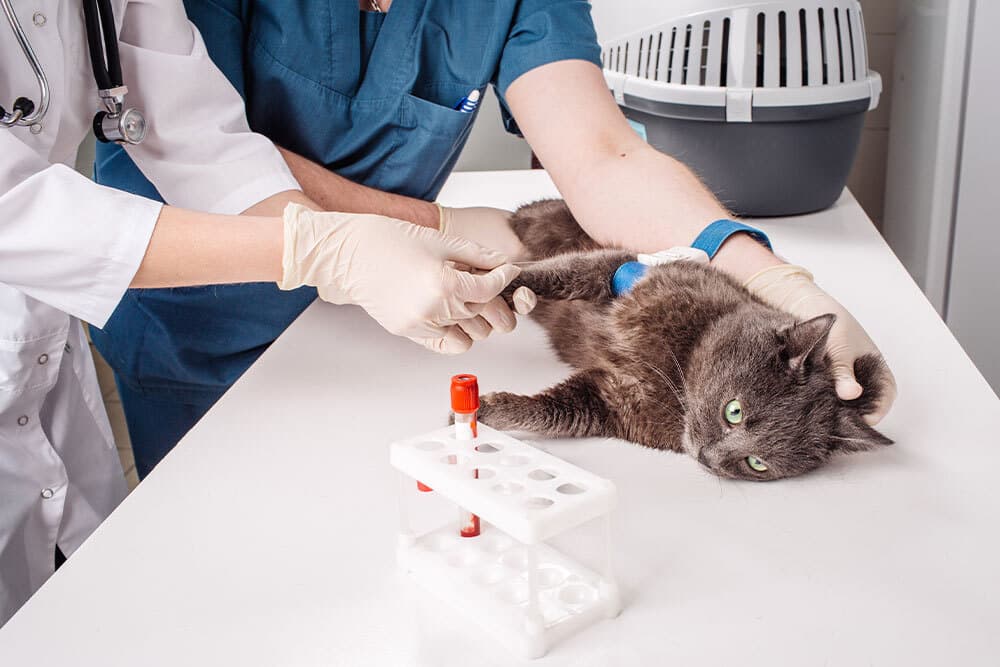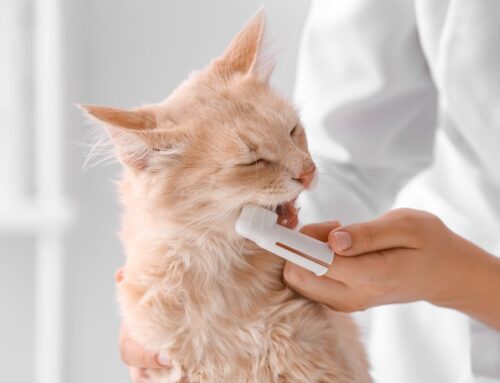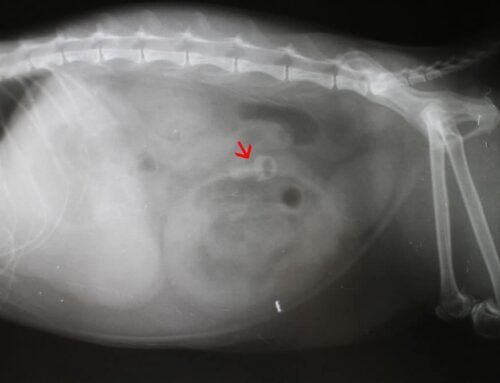At Sonoran Sky Pet Hospital in Mesa, Arizona, we believe in more than just treating illness—we believe in preventing it. While physical exams are essential for assessing your pet’s external health, they can’t always tell the full story. That’s where annual bloodwork comes in. This simple but powerful tool gives us a window into your pet’s internal systems, often revealing early signs of disease before outward symptoms appear.
Routine blood testing is one of the most effective ways to catch health issues early, monitor chronic conditions, and personalize care as your pet ages.
Why Annual Bloodwork Matters
Many health conditions develop quietly. Pets often don’t show noticeable signs of illness until a disease is already advanced. Annual bloodwork allows your veterinarian to:
- Establish a baseline for your pet’s normal values
- Detect early-stage diseases when they are more treatable
- Monitor long-term health trends over time
- Tailor treatments and dietary recommendations to your pet’s specific needs
For more information, read Why Blood Work Is Important for Your Dog – Pet Health Network
What Bloodwork Can Reveal
1. Complete Blood Count (CBC)
The CBC measures red and white blood cells, platelets, and hemoglobin. It helps detect:
- Anemia
- Infections
- Immune disorders
- Bleeding abnormalities
This test is essential for pets showing signs of lethargy, fever, or unexplained weight loss.
2. Chemistry Panel
This panel evaluates how your pet’s internal organs are functioning:
- Liver and kidney health
- Blood sugar (can detect diabetes)
- Electrolyte balance
- Protein levels (important for nutrition and immune function)
It’s especially useful for identifying diseases that may not show signs until they’re advanced, such as chronic kidney disease or liver dysfunction.
3. Thyroid Function Testing
Thyroid hormones regulate your pet’s metabolism. Imbalances can cause:
- Hypothyroidism (common in dogs): leads to weight gain, low energy, and skin issues
- Hyperthyroidism (common in older cats): causes weight loss, high heart rate, and increased appetite
Early diagnosis makes managing these hormonal disorders far easier.
4. Urinalysis
This test evaluates:
- Kidney health
- Bladder infections
- Dehydration
- The presence of crystals or stones
It’s also key in diagnosing conditions like diabetes and urinary tract infections. Abnormal urine can be an early sign that something’s wrong, even before blood tests change.
5. Electrolyte Panel
Electrolytes like sodium, potassium, and calcium are vital for muscle function, hydration, and nerve signaling. Imbalances may point to:
- Dehydration
- Addison’s disease
- Kidney disease
These subtle shifts can provide clues long before a pet appears ill.
Special Considerations for Senior Pets
As pets age, they’re more prone to developing chronic conditions. Regular bloodwork becomes even more critical for:
- Monitoring for kidney failure
- Detecting liver disease
- Managing arthritis and metabolic conditions
According to the AAHA, twice-yearly checkups and annual bloodwork are especially important for pets over seven years old. Catching issues early helps keep older pets comfortable and active.
Tailoring Treatment with Bloodwork Results
Routine bloodwork doesn’t just detect problems—it helps us customize care:
- Adjusting medications based on liver or kidney function
- Recommending diet changes for pets with metabolic conditions
- Planning surgeries more safely with pre-anesthetic screening
- Monitoring the effectiveness of treatments for chronic disease
These insights allow us to provide individualized, proactive care for each patient.
What to Expect During a Bloodwork Appointment
Before the Appointment
- Fasting may be required (especially for accurate glucose or triglyceride levels). Follow your vet’s instructions.
During the Blood Draw
- Blood is typically drawn from the front leg or neck
- The process is quick and usually does not require sedation
After the Appointment
- Results are typically available within a few days
- Your veterinarian will explain the findings and recommend any next steps
How Often Should Bloodwork Be Done?
- Young, healthy pets: Once per year during wellness exams or as needed
- Senior pets (7+ years): Every 6–12 months
- Pets with chronic conditions: As often as recommended by your veterinarian (often every 3–6 months)

The Long-Term Value of Preventive Testing
Preventive bloodwork is an investment in your pet’s future. When we identify problems early:
- Treatment is often more effective
- Emergency costs may be avoided
- Your pet’s comfort and quality of life are preserved
Routine diagnostics also help you make informed decisions about your pet’s care, from diet to medications and long-term planning.
Ready to Take the Next Step?
At Sonoran Sky Pet Hospital, we’re committed to helping your pet thrive. Annual bloodwork is one of the most powerful tools we have for staying ahead of disease and ensuring a longer, healthier life.
Contact us today to schedule your pet’s wellness exam and bloodwork. Your pet deserves nothing less than a lifetime of good health—and we’re here to help you protect it.









Leave A Comment